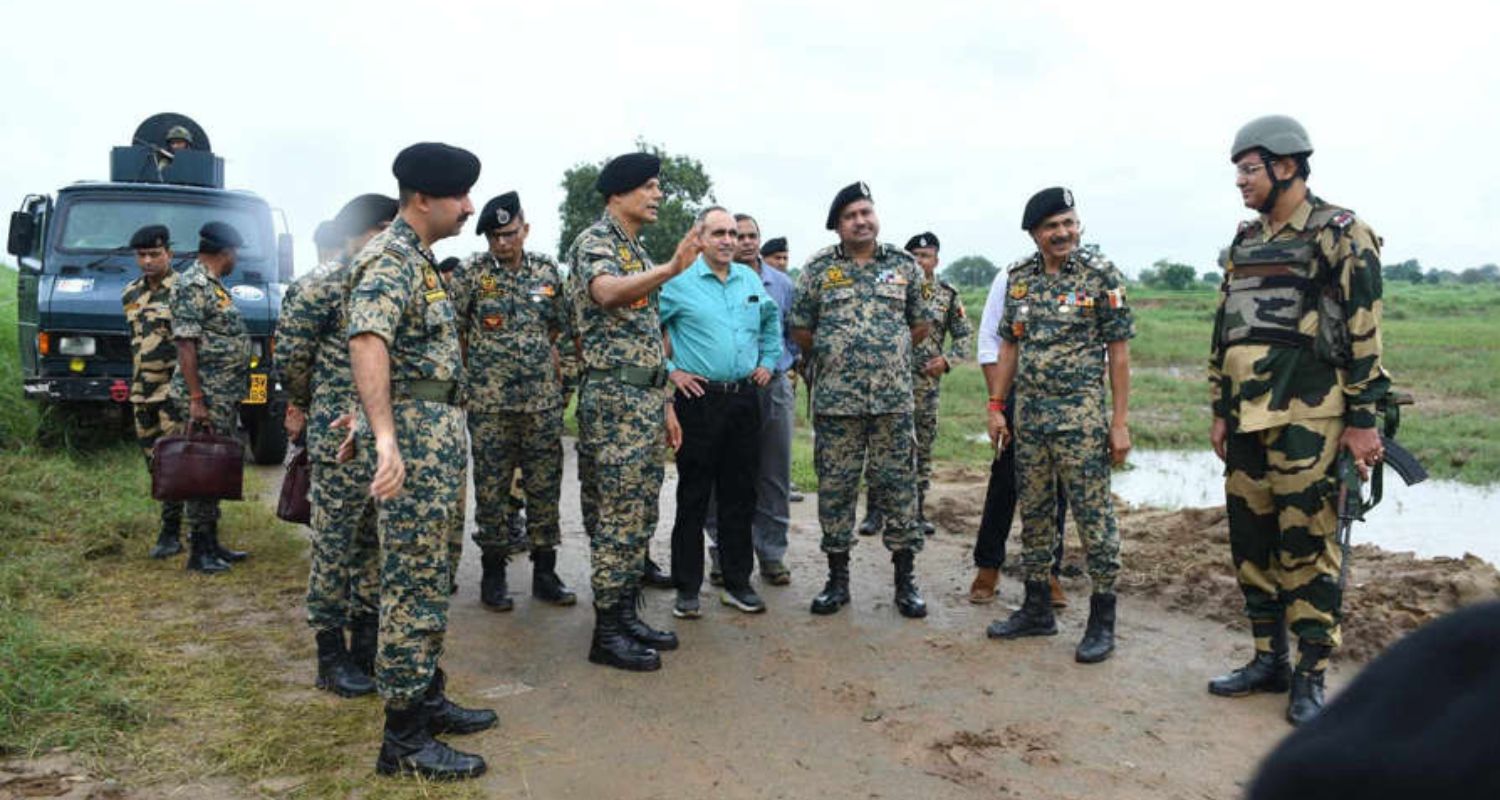Daljit Singh Chawdhary, the Director General of the Border Security Force, visited the Frontier Headquarters of the BSF in Jammu for a two-day tour of the Jammu Frontier.
During the visit, the DG BSF checked the flood-affected areas in Samba near the Jammu International Border, looked at how much damage the floods caused, and watched the work being done to fix the damage, according to the BSF. He also looked into the current security conditions along the international border with Pakistan.
DG BSF told the Sector Commanders and Battalion Commanders about the importance of controlling the area well and being ready for operations to make sure the border is secure, according to the BSF. Meanwhile, the BSF contacted families affected by the floods in several villages in Punjab's Ferozepur on Sunday to provide necessary relief items like drinking water, according to a statement.

This teamwork with local volunteers shows the strong sense of coming together and helping each other in Ferozepur. Together, they are offering hope and essential help to the villages that have been impacted, making sure that nobody is forgotten in this difficult situation, the release said.
Meanwhile, Punjab's Chief Minister, Bhagwant Singh Mann, has asked Prime Minister Narendra Modi to quickly release Rs 60,000 crore in funds that are still pending because of the serious flood situation that has badly affected many areas of the state.
Also Read: Jammu-Srinagar NH likely to be opened for traffic soon
In a letter to the Prime Minister, Mann called the disaster the "worst natural disaster in many years", saying it has already impacted almost 1,000 villages and millions of people. The Chief Minister mentioned that heavy rain and water let out from dams have made the situation worse in the districts of Gurdaspur, Kapurthala, Amritsar, Pathankot, Ferozepur, Fazilka, and Hoshiarpur. He said the problem might get worse in the days ahead.
The Indian Meteorological Department said there will be more rain next month. Mohapatra said that the average rainfall across the whole country in September 2025 is probably going to be higher than usual.
According to his assessment, about three lakh acres of farmland, mostly used for growing rice, have been flooded. Rural families who rely on farming and dairy are struggling a lot because their crops were lost before they could be harvested and many of their animals have died.
Also Read: Schools closed in J&K due to persistent inclement weather



